In today's #dailysoup, I'll talk about a brief overview of the South China Sea dispute between #China, Taiwan, and the SEA countries surrounding the SCS.
This will serve as a rabbit hole before we discuss different topics and events on the SCS dispute in future entries.
1/23
This will serve as a rabbit hole before we discuss different topics and events on the SCS dispute in future entries.
1/23
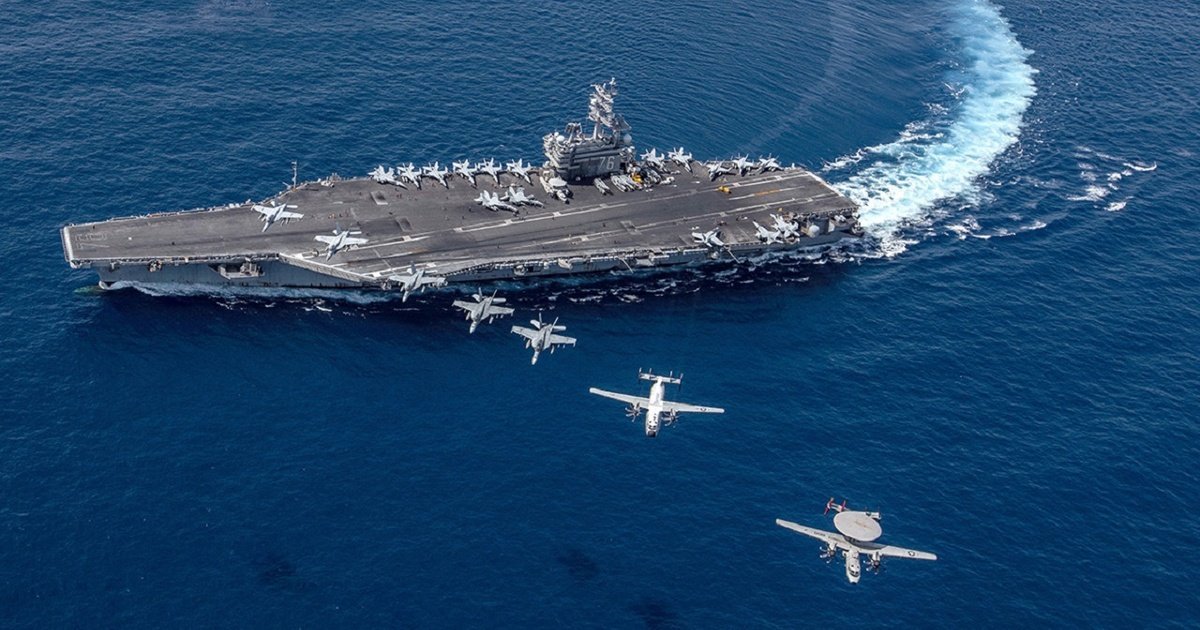
To avoid confusion with the West Philippine Sea, the South China Sea is the whole thing while the West Philippine Sea is the portion of the SCS considered as maritime territory of the Philippines.
2/23
2/23

The #SCS is a very precious East-West trade route, thus granting the name "Asian Mediterranean", especially coz one-third of global shipping uses this route.
The SCS contains natural resources like fish and even oil, especially when there is 220B barrels of oil in the SCS.
3/23
The SCS contains natural resources like fish and even oil, especially when there is 220B barrels of oil in the SCS.
3/23
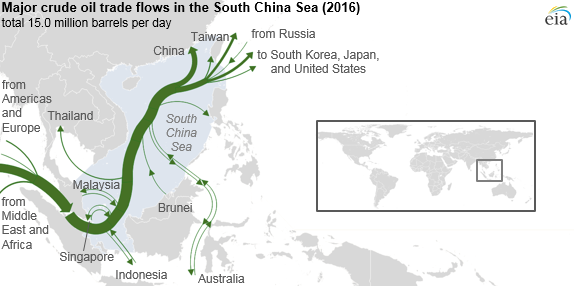
Hence, if aggressor nations like China occupy the SCS for themselves, then natural resources would be hogged, thus impacting the economies of the countries surrounding the SCS.
It will affect the global supply chain as it would force trade ships to seek long-cut routes.
4/23
It will affect the global supply chain as it would force trade ships to seek long-cut routes.
4/23
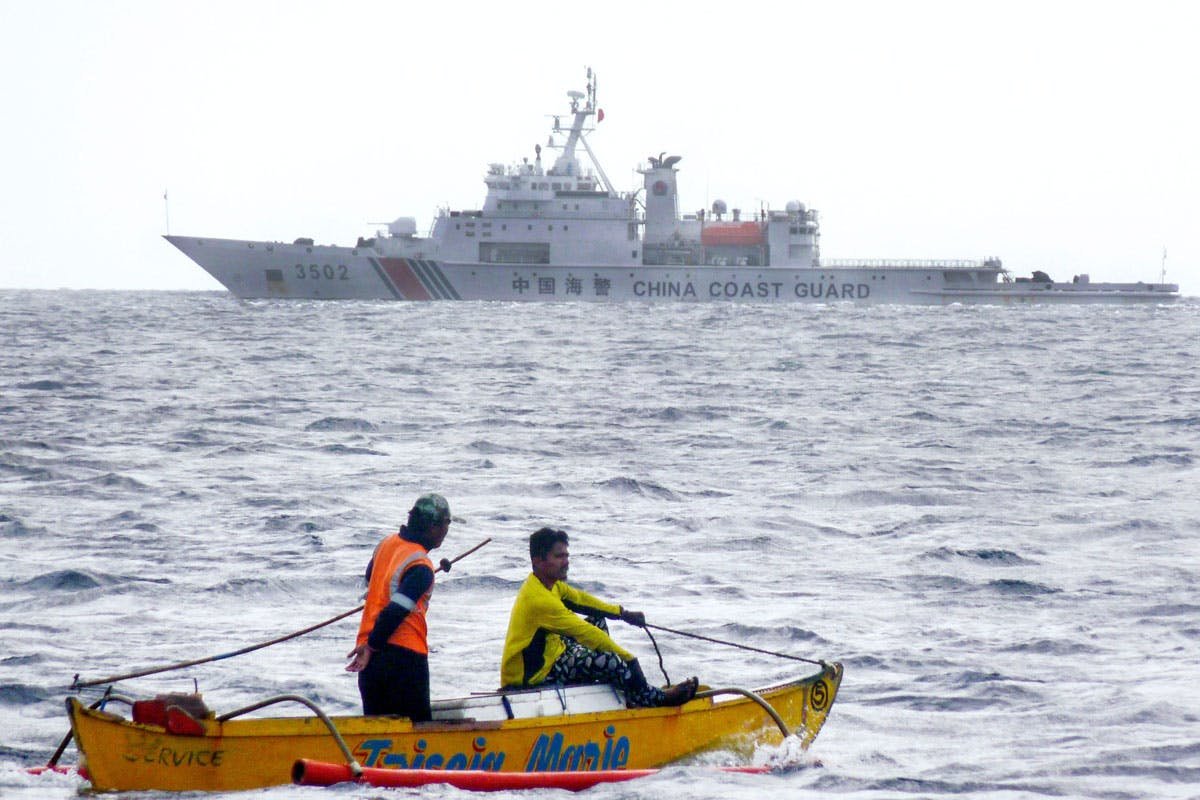
The SCS is experiencing a maritime dispute between China, Taiwan, and the SEA countries surrounding the SCS, namely #Philippines, Brunei, #Malaysia, and Vietnam.
China uses a so-called "nine-dash line" to mark its illegal territorial claims. Meanwhile,...
5/23
China uses a so-called "nine-dash line" to mark its illegal territorial claims. Meanwhile,...
5/23
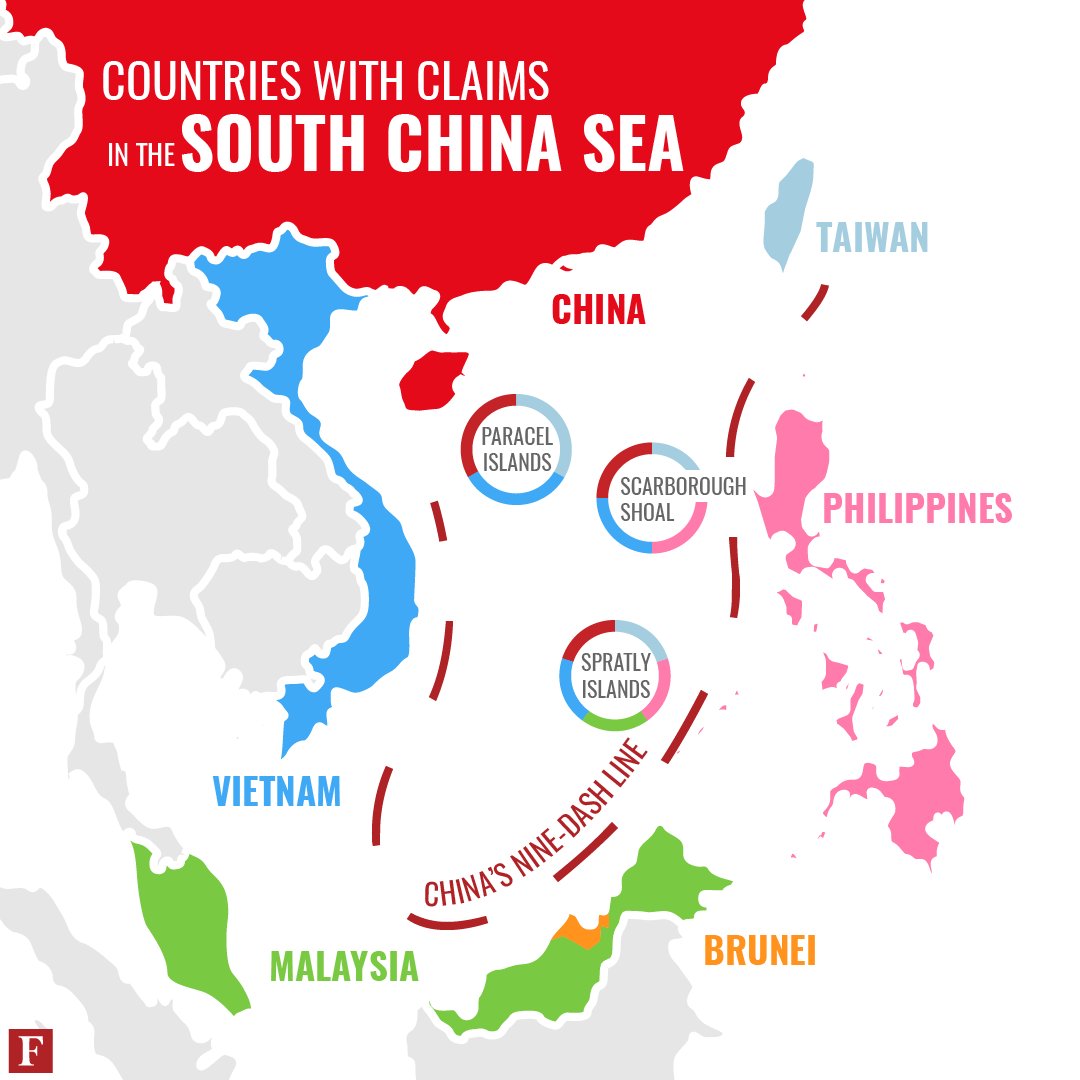
...there are overlapping SCS claims between different SEA countries (e.g. PH vs. VN over Scarborough Shoal).
Although the disputed islands and atolls in the SCS are mostly uninhabited, they are very crucial to the SCS dispute coz of their location in the maritime...
6/23
Although the disputed islands and atolls in the SCS are mostly uninhabited, they are very crucial to the SCS dispute coz of their location in the maritime...
6/23
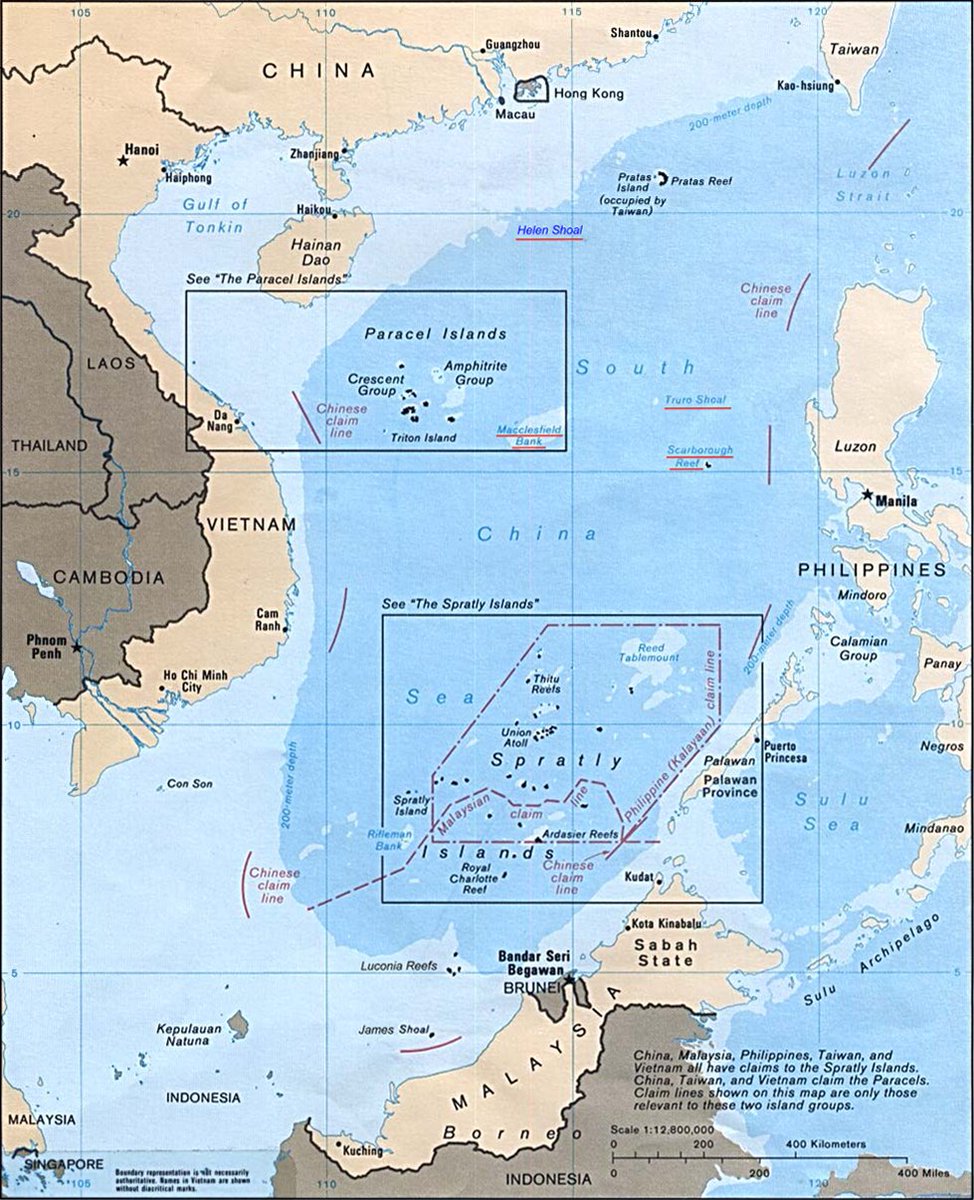
...territories of the SEA countries surrounding the SCS, as well as their proximity to precious maritime natural resources important to the economies of the SEA countries.
Moreover, just imagine trying to fish in the SCS while worrying that China could attack at anytime.
7/23
Moreover, just imagine trying to fish in the SCS while worrying that China could attack at anytime.
7/23

China's claims in the SCS violate a principle of the UNCLOS stating that no foreign country should loiter in a maritime territory of another country without any valid reason.
In 2016, the Philippines won an arbitral ruling vs. China, making China's claims irrelevant.
8/23
In 2016, the Philippines won an arbitral ruling vs. China, making China's claims irrelevant.
8/23
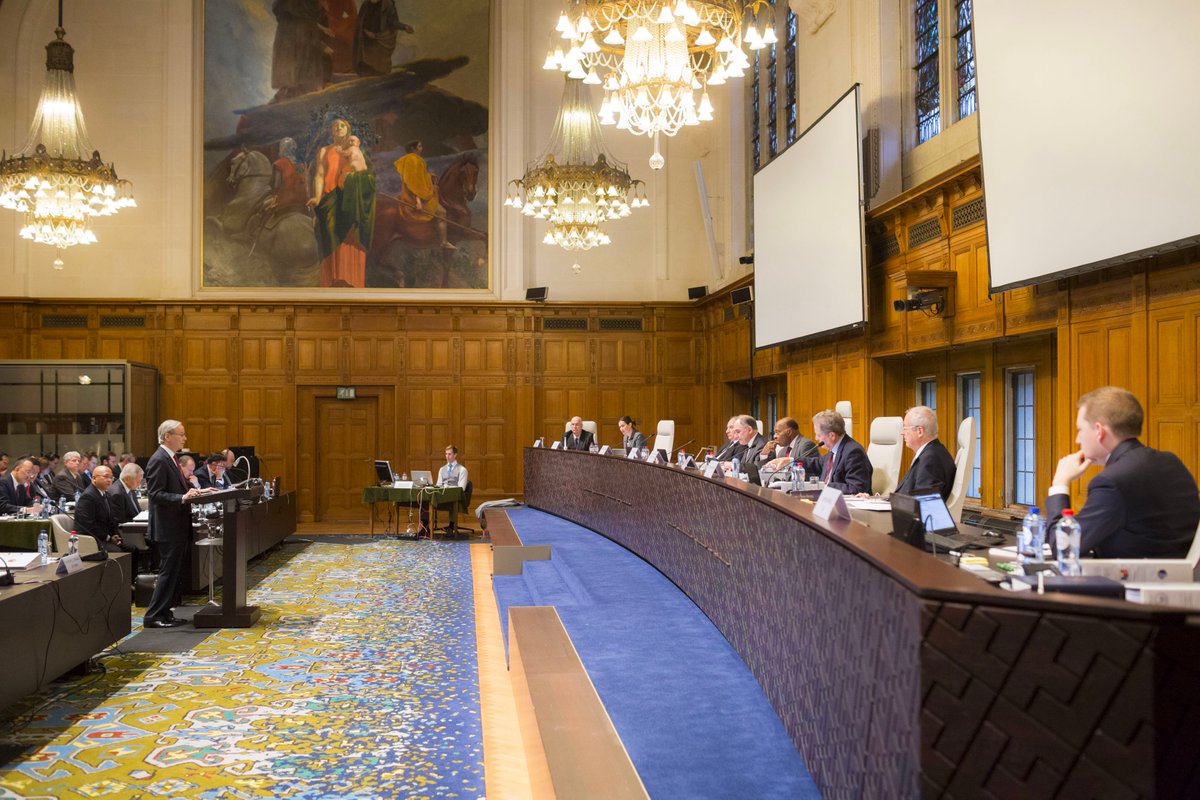
However, China denies the results of the 2016 arbitral ruling, continuing to justify its illegal claims in the SCS through grey-zone episodes against SEA countries.
One such grey-zone tactic can include using pro-CCP peepotalking points.
9/23
One such grey-zone tactic can include using pro-CCP peepotalking points.
9/23
https://twitter.com/olliekarp/status/1650225950024667136?s=20
Grey-zone tactics are tactics used by China in the SCS that are considered as aggressive acts against the SEA nations surrounding the SCS, but not traditional war-level aggressive.
10/23
10/23
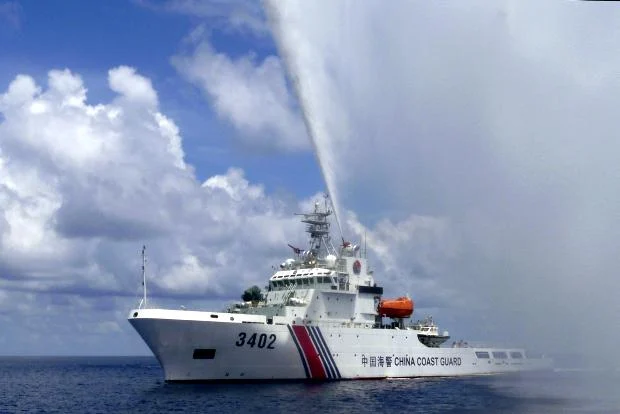
1) Peepotalking
Whenever Chinese vessels see perceived "foreign vessels", they would tend to react by announcing in a megaphone: "Get out or there will be war!"
One example is the recent episode between a Chinese vessel and a Filipino vessel carrying journalists.
11/23
Whenever Chinese vessels see perceived "foreign vessels", they would tend to react by announcing in a megaphone: "Get out or there will be war!"
One example is the recent episode between a Chinese vessel and a Filipino vessel carrying journalists.
11/23
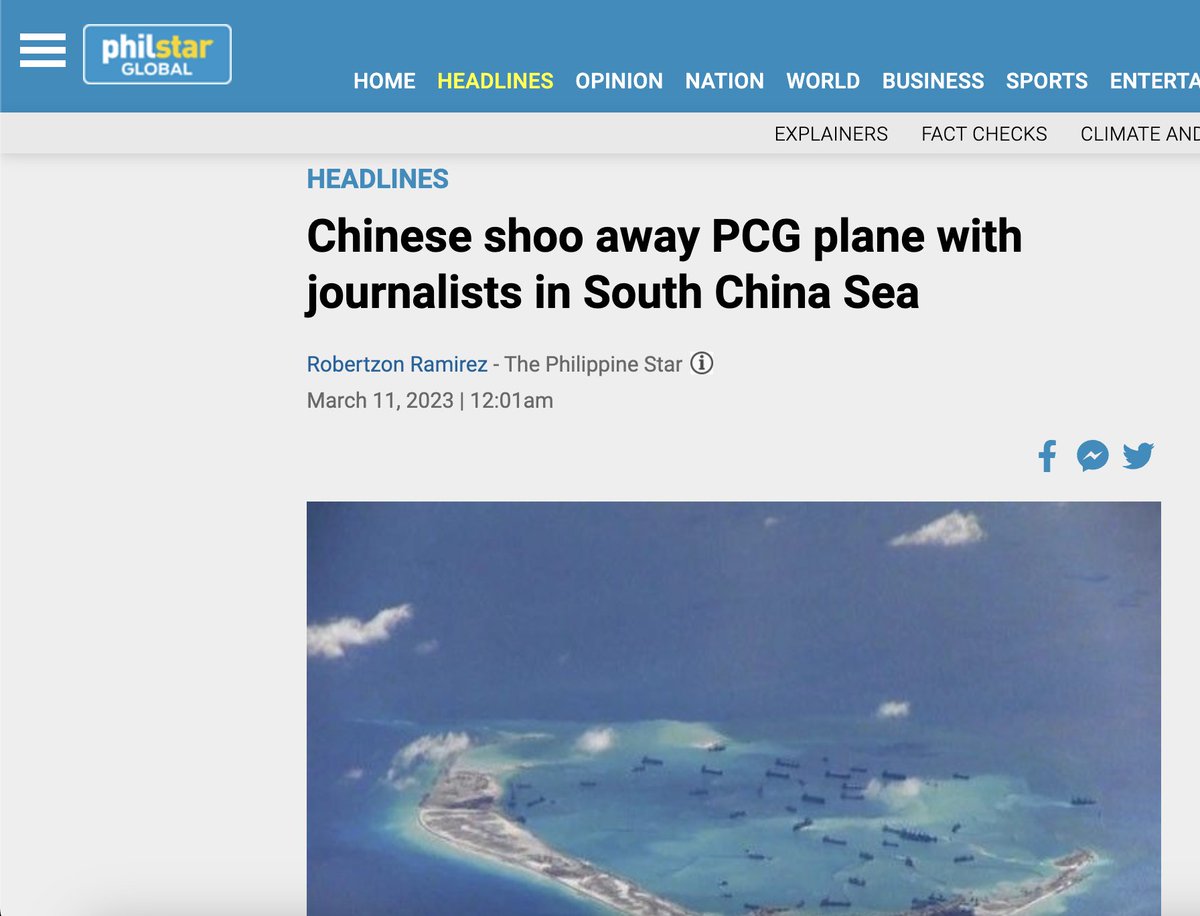
Moreover, Chinese officials or pro-China peepotalkers would use the "China seeks a peaceful rise" and "The West is the one provoking China" peepotalking tactics in an attempt to justify China's grey-zone episodes.
One example is Huang Xilian.
12/23
One example is Huang Xilian.
12/23
https://twitter.com/olliekarp/status/1647633740397694981?s=20
Furthermore, China would use "historical narratives" as a means to justify its illegal SCS claims.
Examples of these include the "Century of Humiliation" peepotalking point and the claim that "ancient Chinese settled first in the SCS", which lacks proper evidence.
13/23
Examples of these include the "Century of Humiliation" peepotalking point and the claim that "ancient Chinese settled first in the SCS", which lacks proper evidence.
13/23
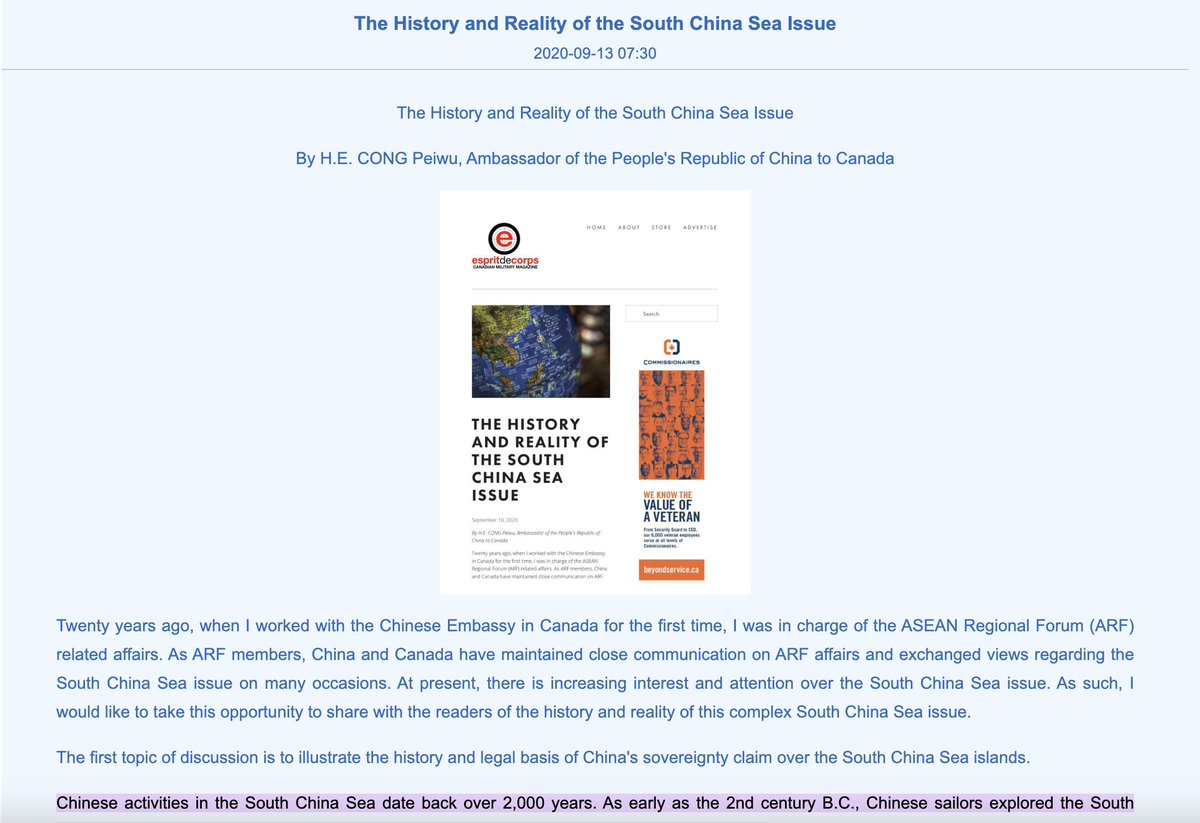
2) The Death Stare
A common Chinese grey-zone tactic can include the "death stare" strategy, in which several Chinese ships would loiter in the SEA countries' maritime territories for a long time as if they "own the place". One example...
14/23
A common Chinese grey-zone tactic can include the "death stare" strategy, in which several Chinese ships would loiter in the SEA countries' maritime territories for a long time as if they "own the place". One example...
14/23
https://twitter.com/olliekarp/status/1630277626450550784?s=20
...can include an instance in April 28, 2023, when Chinese Coast Guard ships loitered in the Ayungin Shoal, prompting Philippine vessels to tell them to leave immediately.
15/23
15/23
https://twitter.com/FMangosingINQ/status/1651811239683854336?s=20
3) Blocking
Another Chinese grey-zone tactic can include the tactic of blocking perceived "foreign vessels" passing through the SCS.
One example of this is the 2012 Scarborough Shoal standoff, in which Philippine vessels were blocked by Chinese surveillance vessels.
16/23
Another Chinese grey-zone tactic can include the tactic of blocking perceived "foreign vessels" passing through the SCS.
One example of this is the 2012 Scarborough Shoal standoff, in which Philippine vessels were blocked by Chinese surveillance vessels.
16/23
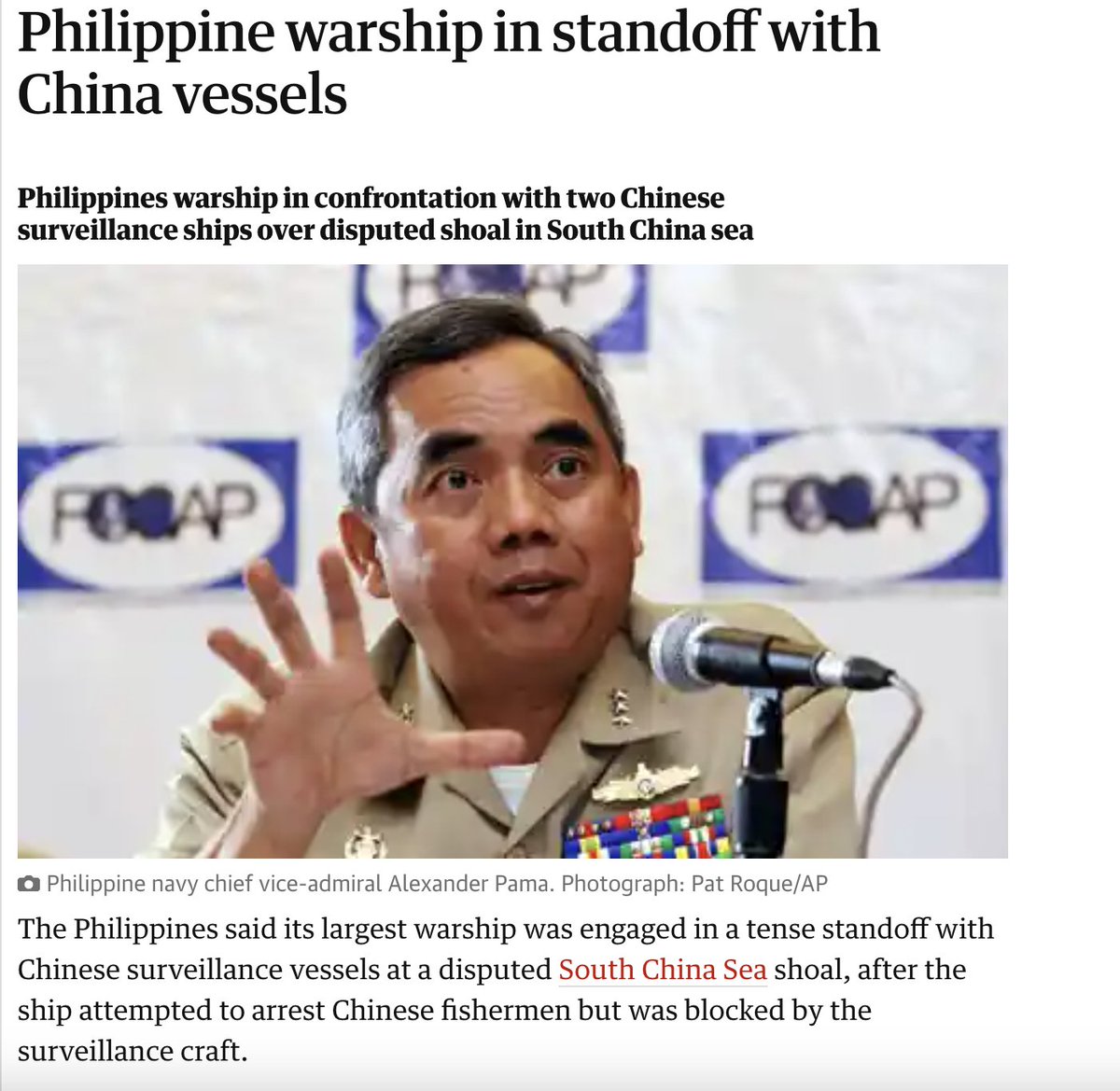
4) Ramming
Chinese vessels also do another grey-zone tactic of ramming vessels of SEA countries surrounding the SCS, leading to the sinking of the vessels.
One example can include Chinese vessels ramming Vietnamese fishing vessels in the SCS since 2014.
17/23
Chinese vessels also do another grey-zone tactic of ramming vessels of SEA countries surrounding the SCS, leading to the sinking of the vessels.
One example can include Chinese vessels ramming Vietnamese fishing vessels in the SCS since 2014.
17/23

5) Throwing excrements and projectiles
Chinese vessels also engage in a grey-zone tactic of throwing soil intended for building "illegal islands" in the SCS, as well as human excrements and even projectiles like water cannons.
18/23
Chinese vessels also engage in a grey-zone tactic of throwing soil intended for building "illegal islands" in the SCS, as well as human excrements and even projectiles like water cannons.
18/23
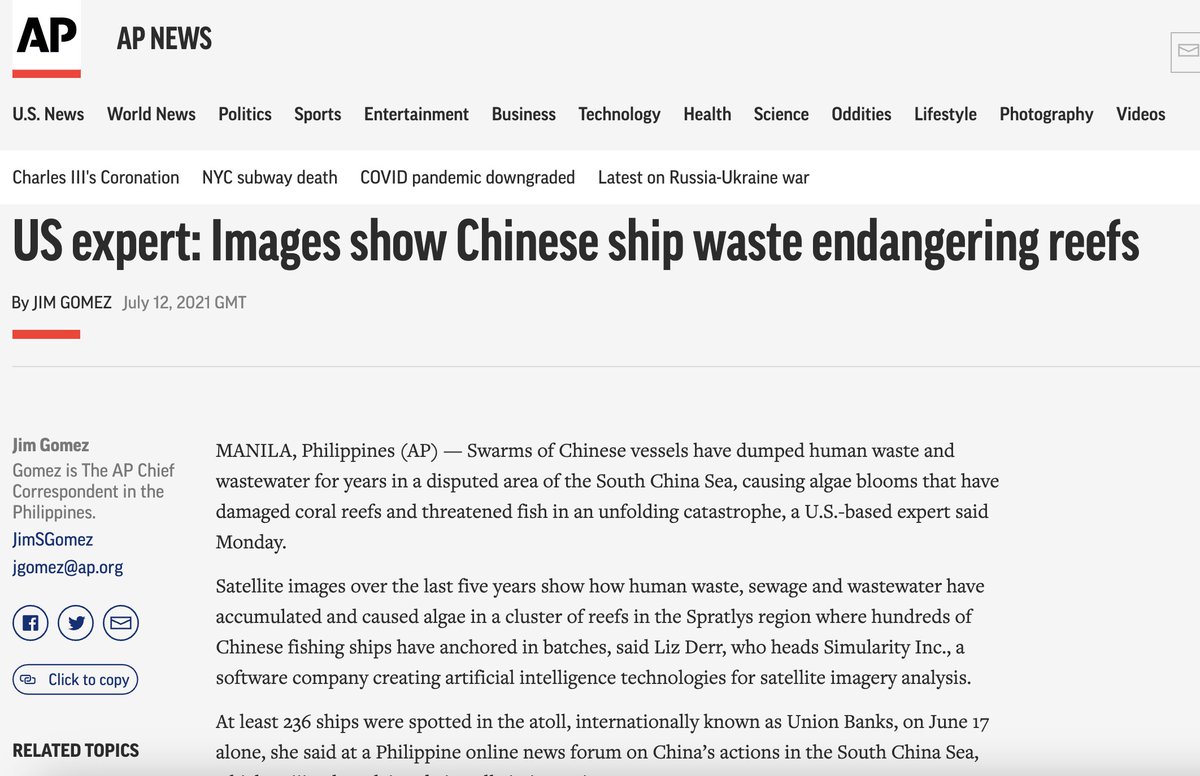
Moreover, Chinese vessels would shoot something drastic, just like that one instance in February 2023 when a Chinese Coast Guard vessel pointed a green laser at a Philippine vessel, the BRP Malapascua, at the Ayungin Shoal.
19/23
19/23
https://twitter.com/FMangosingINQ/status/1624895939575181312?s=20
Worse, Chinese vessels in the SCS tend to hide themselves from view by turning off their AIS, thus making maritime trackers unaware of the vessels' actions, giving more room for them to do grey-zone episodes like the 02/2023 green laser incident.
20/23
20/23
https://twitter.com/GordianKnotRay/status/1622666595494666241?s=20
As a response to Chinese grey-zone tactics in the SCS, the SEA countries surrounding the SCS are doing their best to make use of Western assistance, military exercises, and alliances like the Quad x AUKUS to bolster their defences amidst rising Chinese tensions in the SCS.
21/23
21/23
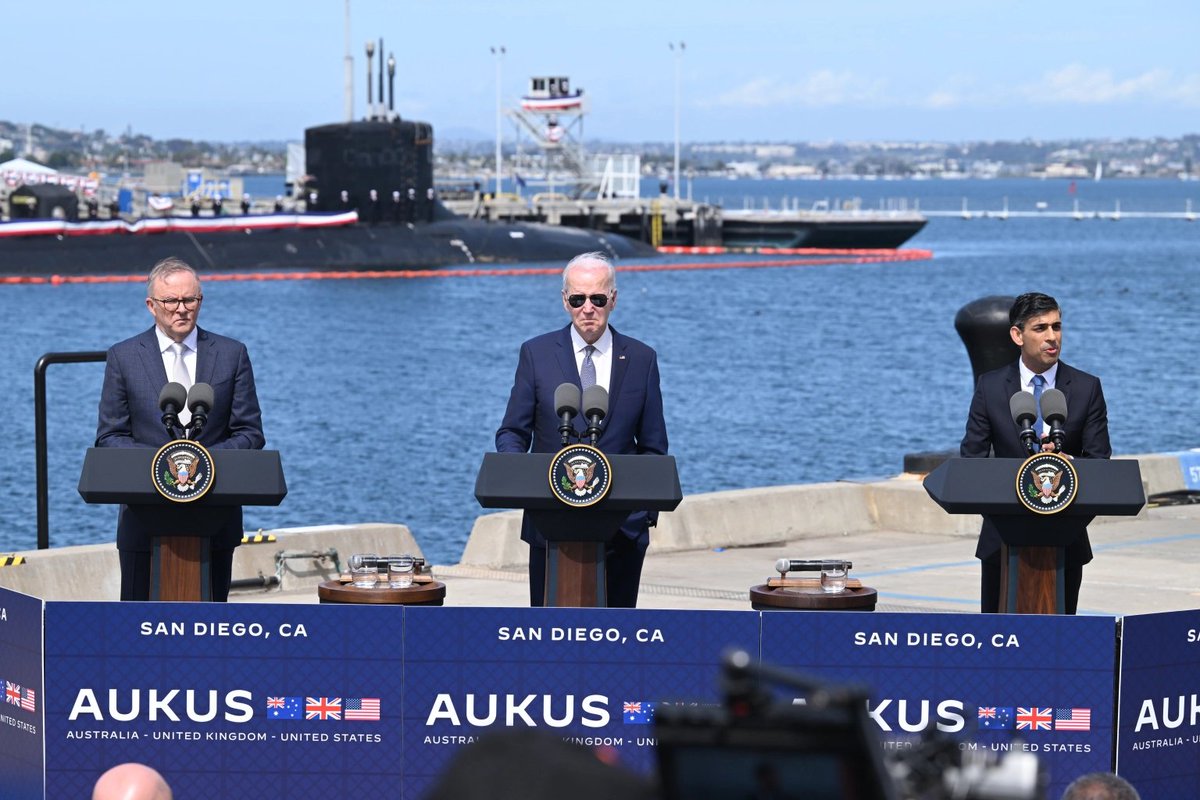
Moreover, after the Philippines experienced recent grey-zone episodes from China such as the February 2023 green laser incident, Manila has been committing itself to bolster the level of exposing Chinese activities in the SCS, as well as making use of its relations with...
22/23
22/23
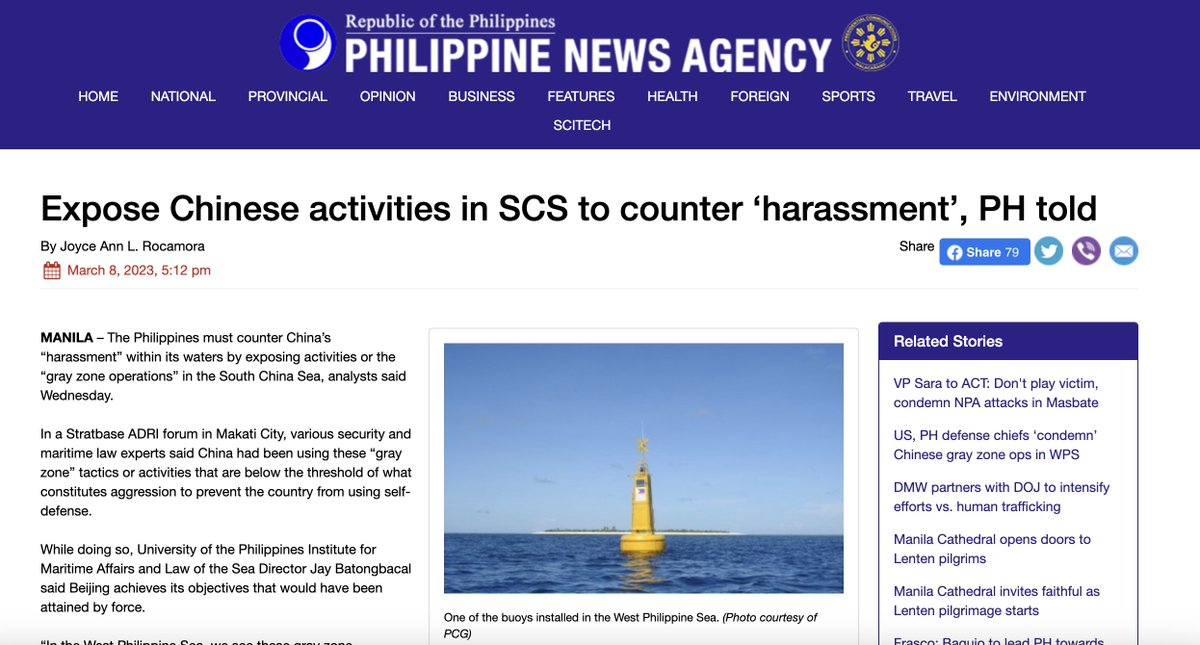
...the US to help bolster Philippine defences despite the current capacity and strength of the Philippine Army, especially through continuing the VFA agreement, making use of the Balikatan exercises, and allowing the addition of new EDCA sites in the Philippines.
23/23
23/23
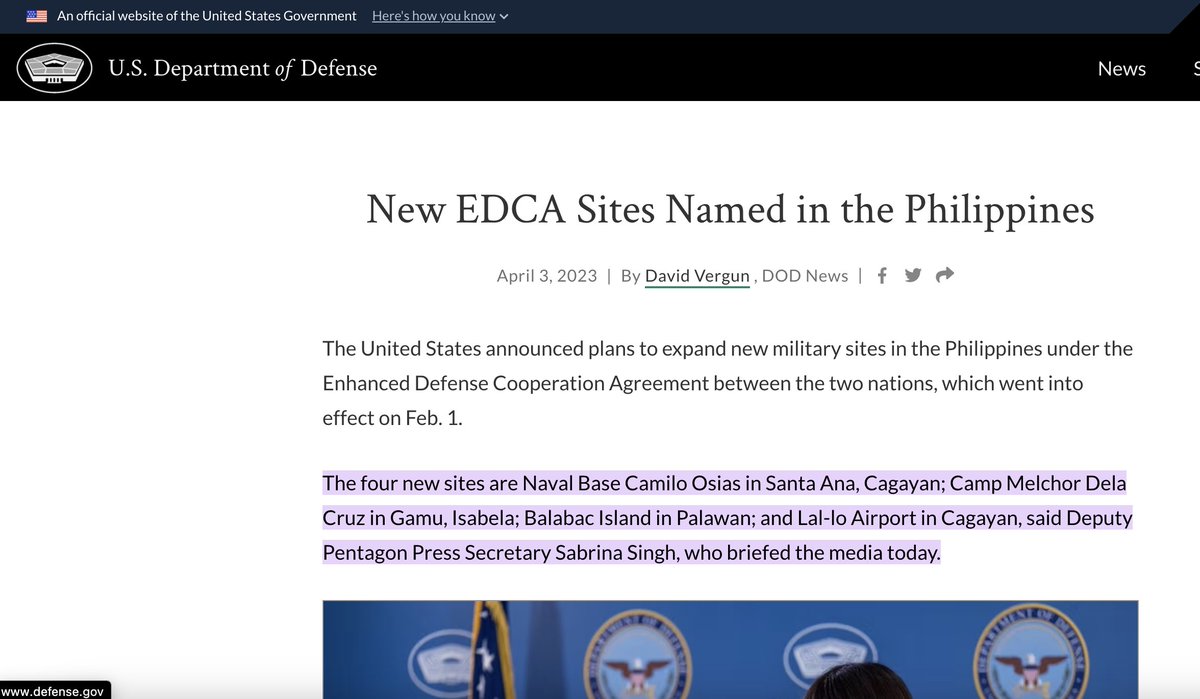
Support my work:
Related entries:
Entry #52 (Pro-CCP peepotalking points) - https://t.co/0UwyfHrhZn
Entry #48 (Huang Xilian) - https://t.co/fJsK1vL4uR
Entry #55 (Belt and Road Initiative) - https://t.co/wTjFYUHdcqbuymeacoffee.com/olliekarp
Related entries:
Entry #52 (Pro-CCP peepotalking points) - https://t.co/0UwyfHrhZn
Entry #48 (Huang Xilian) - https://t.co/fJsK1vL4uR
Entry #55 (Belt and Road Initiative) - https://t.co/wTjFYUHdcqbuymeacoffee.com/olliekarp
https://twitter.com/olliekarp/status/1650225950024667136?s=20
https://twitter.com/olliekarp/status/1647633740397694981?s=20
https://twitter.com/olliekarp/status/1652398339160440833?s=20
Related entries (cont.):
Entry #3 (CHEC x CCCC) -
This is Entry #60 of the #dailysoup. For previous entries, kindly visit this link: https://t.co/eTQ9EABZZX
bit.ly/thedailysoup
Entry #3 (CHEC x CCCC) -
This is Entry #60 of the #dailysoup. For previous entries, kindly visit this link: https://t.co/eTQ9EABZZX
https://twitter.com/olliekarp/status/1628479298733735937?s=20
bit.ly/thedailysoup
Shoutouts for the info: @FMangosingINQ, @GordianKnotRay
@threadreaderapp unroll
• • •
Missing some Tweet in this thread? You can try to
force a refresh

































